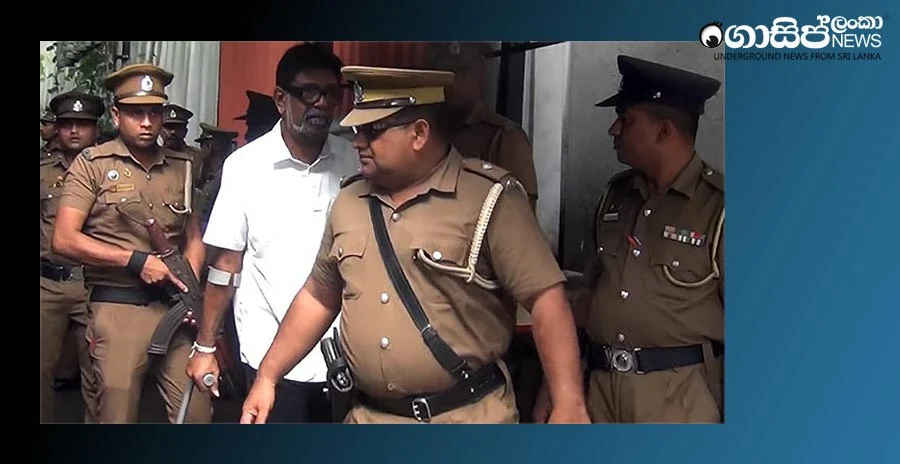Former Cabinet Minister Keheliya Rambukwella, his wife Kusum Priyadarshani, and daughter Chandula Ramali have been remanded in custody following their arrest on charges of money laundering and public fund misappropriation.
The arrest was carried out by the Commission to Investigate Allegations of Bribery or Corruption (CIABOC) after the trio appeared to record statements regarding suspicious financial transactions and unauthorized payments from government funds.
Background: The Fall of a Powerful Political Figure
Keheliya Rambukwella has been a prominent figure in Sri Lankan politics, having served in key ministries including Mass Media, Health, and Environment. However, his public image began to erode following repeated allegations of corruption, most notably during his tenure as Minister of Health.
The current charges stem from a broader investigation into the appointment of non-existent personal staff—individuals who were never employed but were listed on official payrolls. These ghost appointments allegedly resulted in over Rs. 8 million in losses to the government.
In an earlier case, Rambukwella’s son, Ramith, a former cricketer and media officer, was also accused of drawing a salary from a government position he did not actively hold.
Arrest and Remand
After being questioned by CIABOC, the former minister, his wife, and daughter were formally arrested and produced before the Colombo Magistrate’s Court. The court ordered that all three be remanded until further notice, pending ongoing investigations.
The remand signals the seriousness of the inquiry and suggests that the legal process will continue to explore the depth of the alleged money laundering scheme and possible concealment of state funds through family networks.
Legal and Political Implications
This case is one of the most high-profile family-linked corruption crackdowns in recent Sri Lankan history. It signals a firm stance by oversight bodies against the long-standing culture of impunity enjoyed by political elites.
Legal analysts note that the involvement of multiple family members hints at coordinated financial dealings. Authorities are expected to examine asset trails, foreign accounts, and real estate ownership linked to the Rambukwellas.
What Happens Next
The remanded trio will remain in custody while further statements are recorded and financial records scrutinized. If indicted under Sri Lanka’s anti-corruption and money laundering laws, they could face substantial penalties, including prison terms and asset confiscation.
This case is being closely watched by civil society groups and the public, many of whom see it as a litmus test for the government’s willingness to enforce accountability, even among its own.
![Gossip Lanka News [English] Gossip Lanka News [English]](https://blogger.googleusercontent.com/img/a/AVvXsEhYm2aFFq-bIW1nWX-RrqnPFoIsVos6_VCVz8BpLt0QJi55GNXHXC2fugeRvL0qUStEuCfs7Sfu6ZiSlhrkldxfGuE_wzy5gitY6rMZ2KSi8VBbGvkgXLks37RwZV-4-HKbWiNLRxB8C_r1e4z3mpxFTMPDJPEADoG8E-bZteWFipeD5KNGbjvCfqEfKw=s300)
